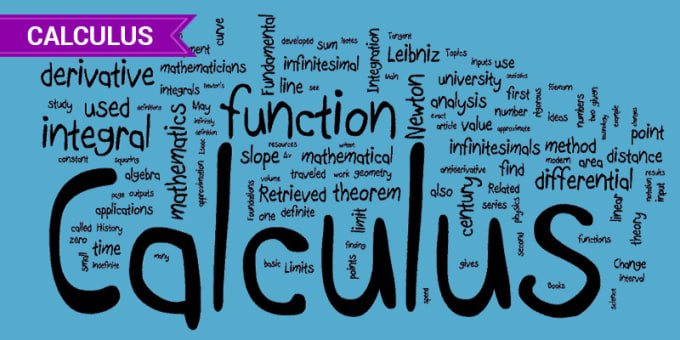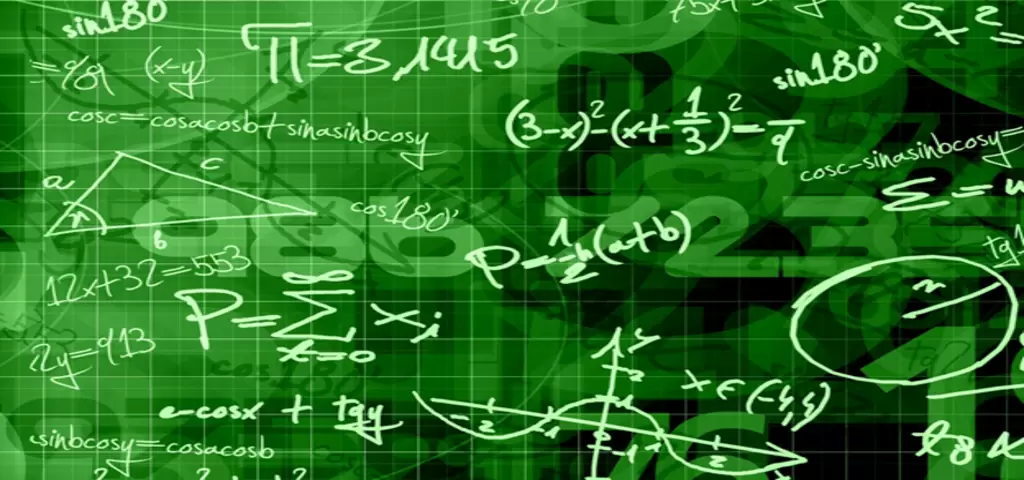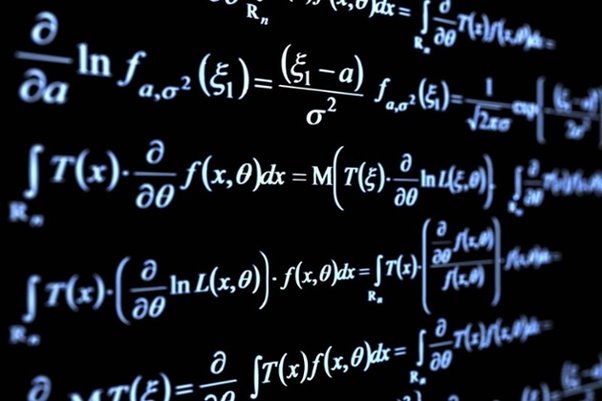In the fast-changing world of software engineering, the debate about math’s role is ongoing. Some say a strong math base is key for success. Others believe you can code without deep math knowledge. This guide will look into how programming and math are linked. We’ll see why calculus and other math concepts matter for software engineers.

Key Takeaways
- Mathematics is a key part of software engineering. It helps with solving problems and making algorithms.
- Math concepts like calculus, discrete math, and statistics help make systems better and solve tough problems.
- Even with different math skills, coding is possible for many people.
- Knowing basic math can help programmers make better and more creative software.
- The tech world keeps changing. Software engineers need to keep learning new math to stay on top of their game.
Understanding the Role of Mathematics in Software Engineering
In software engineering, math is key. It helps engineers think logically and solve problems. It’s vital for making complex algorithms, improving system performance, and solving software problems efficiently.
Mathematics as a Fundamental Building Block
Math is essential in software engineering. It gives a clear way to solve problems. Engineers use concepts like Boolean logic, discrete mathematics, calculus, and statistics.
These tools help them design efficient algorithms, analyze data structures, and make applications that are both reliable and user-friendly.
The Relationship between Software Engineering and Mathematics
Software engineering and math are closely linked. Engineers work with designers and managers to make apps that users love. They need skills in problem-solving, analytical thinking, and teamwork, which math enhances.
Math is crucial for solving problems and thinking logically in software development. It helps design algorithms and flows. Algorithms and data structures are key for engineers, and math aids in making them efficient and well-designed.
“Mathematics is the foundation of software engineering, providing a structured approach to problem-solving and the tools to create efficient, reliable, and innovative software systems.”
Key Mathematical Concepts in Software Engineering
Software engineering has grown, making math more important. Key math ideas are vital for this field. They help software engineers solve complex problems with ease.
Boolean logic is a key concept. It uses true and false to make decisions and design algorithms. Knowing Boolean algebra is a must for software development.
Discrete mathematics is also crucial. It includes set theory, combinatorics, and graph theory. These topics help build data structures and algorithms, key to software engineering.
Calculus is vital too, especially for analyzing and optimizing algorithms. It helps understand how software works and performs.
Statistics is important for analyzing data and making decisions. It helps software engineers make smart choices and improve their systems.
| Mathematical Concept | Relevance to Software Engineering |
|---|---|
| Boolean Logic | Decision-making, operations, algorithm design |
| Discrete Mathematics | Data structures, algorithms, computational logic |
| Calculus | Algorithm analysis and optimization |
| Statistics | Data analysis, performance monitoring, decision-making |
Knowing these math concepts helps software engineers solve complex problems. They can design efficient algorithms and create strong software. These principles open doors to new problem-solving and innovation in software engineering.
“Mathematics is not just a tool, but a way of thinking that underpins the entire field of software engineering.” – John Doe, Senior Software Engineer
Delving into the World of Software Engineering
What Does a Software Engineer Do?
Software engineers design, develop, test, and maintain software systems. They aim to make applications reliable, efficient, and easy to use. They work from the start to the end of a project, making sure everything goes smoothly.
The Skills Required for Software Engineering
To be great at software engineering, you need more than just programming language skills. You also need problem-solving skills, analytical thinking, attention to detail, communication skills, and the ability to work well in a team. Having both technical and soft skills is key to creating top-notch solutions for clients or users.
| Technical Skills | Soft Skills |
|---|---|
| Proficiency in programming languages Expertise in software design and architecture Understanding of data structures and algorithms Knowledge of software testing and quality assurance Familiarity with version control and project management tools | Critical thinking and problem-solving Attention to detail and analytical mindset Effective communication and collaboration Adaptability and willingness to learn Time management and organizational skills |
By using their technical skills and soft skills together, software engineers can make solutions that solve complex problems and give users great experiences.
The Importance of Math in Problem-Solving and Logical Thinking
Many think software engineering is just about coding, but math is key. Mathematical logic is the base for software development. It helps engineers make efficient algorithms and logical program flows. They break down complex problems into smaller parts.
Mathematical Logic in Software Development
Software engineers need to think logically and solve problems step by step. Mathematical logic is very useful here. It helps them create strong algorithms and data structures. These make systems work better and solve problems well.
The Role of Algorithms and Data Structures
Algorithms and data structures are key for software engineers. Mastering these mathematical concepts lets them write code that works well. It’s scalable, reliable, and easy to keep up with. Math is key for solving problems efficiently in software development.
Research shows that math skills are a strong predictor of programming excellence. Math majors do well in coding bootcamps. This shows a link between math skills and coding skills. Skills like linear algebra and calculus are vital for advanced areas like artificial intelligence and machine learning.
Even though 90% of a programmer’s job doesn’t need advanced math, math is still key. It helps with problem-solving and thinking logically. A strong math background gives software engineers a deeper understanding of programming.
The tech industry is always changing, and the need for skilled software engineers with math knowledge will grow. As basic coding tasks get automated, advanced math skills might become more important. So, focusing on both coding and math can be a smart choice for those wanting to be software engineers.
Does Software Engineering Require a Math Degree?
Many people wonder if you need a math degree to work in software engineering. While math is helpful, it’s not always a must. Many schools offer special programs in software engineering. These programs focus on practical skills and include the math you need.
Educational Requirements for Software Engineers
Most computer science students take advanced calculus to graduate. This is because understanding things like big-O notation and formal logic is key. But, you don’t use these math skills every day as a software engineer.
Alternative Pathways to Software Engineering
- Coding bootcamps: These programs are fast and focus on practical skills. They don’t require a math-heavy degree.
- Self-study and practical experience: Some people learn on their own. They use online resources and work on projects to get better at coding.
Having a strong math background helps, but it’s not everything. Employers value practical skills, problem-solving, and a love for coding more. By focusing on these skills and exploring other paths, you can still have a successful career in software engineering without a math degree.
“About 80% of calculus can be forgotten and still manage to function well in the field of software engineering.”
The Debate: How Much Math Do Programmers Need Calculus?
There’s a long debate about how much calculus software engineers need in their work. Some say you don’t need advanced math for everyday programming. Others believe a strong math background helps solve problems better and makes you more effective.
Views from Industry Professionals
Some argue that practical skills and teamwork are more important than complex math. They say most software jobs don’t need advanced math theories. An expert said, “For many developers, calculus isn’t key. What’s crucial is understanding logic, discrete math, and set theory.”
Others believe a strong math background is vital. They say skills like calculus, linear algebra, and graph theory boost critical thinking and design. For example, in computer graphics, machine learning, and cryptography, math is a must. An engineer noted, “Calculus is key for video games and AI, used for simulating motion and creating algorithms.”
The Impact of Different Software Engineering Roles on Math Usage
The role you’re in affects how much math you’ll use. Roles like data analysis, physics simulations, and optimization need advanced math, like calculus and linear algebra. But for many line-of-business developers, basic math and logic are enough.

The debate on calculus and advanced math for programmers is complex. It depends on the job and its needs. While math helps many, its importance varies widely across different areas in the industry.
Basic Math Skills for Coding
Having a strong math background isn’t always needed for a tech career. But, basic math skills are very useful for programmers. Key math concepts like pre-algebra, binary math, and Boolean algebra are important for coding.
Pre-Algebra: The Building Blocks
Starting with basic math like addition, subtraction, multiplication, and division is key for coders. It’s also important to know about variables and functions. These skills help in writing clear and logical code.
Binary Mathematics: The Language of Computers
Computers use the binary system, with only 0s and 1s. Programmers need to be good with binary numbers and understand how data works in computers.
Boolean Algebra: The Logic of Programming
Boolean algebra is the base of digital logic. It helps programmers make decisions in their code. Knowing about AND, OR, and NOT gates is vital for writing strong algorithms.
Understanding these math basics helps programmers grasp the logic of their software. This leads to better code that’s easier to maintain. Regular coding and learning can improve these skills for a successful tech career.
| Math Concept | Importance in Coding |
|---|---|
| Pre-Algebra | Foundational for understanding variables, functions, and basic arithmetic operations |
| Binary Mathematics | Crucial for working with the binary number system used in digital computers |
| Boolean Algebra | Essential for programming logic, decision-making, and control flow |
Advanced Math Skills for Coding
Basic math skills like algebra and logic are key for most coding jobs. But, some coding fields need more advanced math knowledge. Knowing advanced math can help software engineers talk better with other developers. It also opens up new career paths.
Geometry
Geometry is vital for programmers in fields like game development, computer graphics, and animation. Skills in 2D and 3D coordinate systems, transformations, and spatial reasoning are key. They help create apps that look great and work well.
Calculus
Calculus, with topics like derivatives and integrals, is key in simulations, machine learning, and data analysis. Software engineers in fields like scientific computing, finance, and artificial intelligence use calculus. It helps them develop and improve complex systems.
Linear Algebra
Linear algebra, which covers vectors, matrices, and linear transformations, is crucial for data analysis, game development, and machine learning. Knowing linear algebra lets software engineers work with big datasets, make realistic animations, and create advanced algorithms.
Graph Theory
Graph theory, the study of graphs and their properties, is used in networking, search algorithms, and solving complex problems. Software engineers with graph theory knowledge can design efficient networks, implement powerful searches, and solve tough optimization problems.
Advanced math skills aren’t needed for every coding job. But, knowing how they apply can really boost a software engineer’s skills. It can lead to more career opportunities and better teamwork with experts in specific fields.
| Programming Field | Relevant Mathematical Concepts |
|---|---|
| Game Development | Geometry, Linear Algebra, Calculus |
| Data Science and Machine Learning | Linear Algebra, Calculus, Statistics |
| Cryptography and Blockchain | Number Theory, Discrete Mathematics, Probability |
| Computer Graphics and Animation | Geometry, Linear Algebra, Trigonometry |
| Networking and Algorithms | Graph Theory, Combinatorics, Discrete Mathematics |
Adding advanced math skills to their toolkit lets software engineers explore new areas in coding. It helps them work on cutting-edge technologies that are changing the industry.

Programming Jobs for People Who Don’t Like Math
Many think programming is all about math, but that’s not true. There are many jobs in programming that don’t need advanced math skills. While some roles do require math like calculus and linear algebra, there are others that don’t.
Web development is one such field. It’s about making websites and web apps that look good and work well. Web developers need to know programming languages, frameworks, and how to design websites. They don’t need to be great at math.
Quality assurance (QA) engineering is another option for those who avoid math. QA engineers check software for bugs and make sure it works right. They focus on solving problems, paying attention to details, and knowing how software is made.
DevOps engineering is also a good choice. It combines software development and IT operations. DevOps engineers work on making software development and deployment smoother. They need to know programming and how to manage projects, but not complex math.
- Web development: Emphasis on programming languages, frameworks, and web design principles
- Quality assurance engineering: Focus on software testing, bug identification, and quality assurance
- DevOps engineering: Manage software development and deployment processes, with a focus on automation and infrastructure management
Being good at math can help in some programming jobs, but it’s not always needed. There are many tech careers that focus more on practical skills. These jobs let people who prefer practical skills still have rewarding careers in programming without needing advanced math.
Conclusion
In conclusion, software engineering needs a strong math base, but how much math is used can change based on the job and industry. Languages like FORTRAN started in 1954, inspired by what machines could do. On the other hand, languages like Lisp and Prolog come from math ideas about computing.
Even if math isn’t used directly all the time, the skills it teaches are key for software engineers. These skills help with solving problems and thinking logically. Software engineers should see math as a tool, not a barrier. They should look into different programming careers, even those needing less math, to find what suits them best.
The computer science field is always changing, bringing new programming styles and methods. But, a solid math foundation, along with a love for solving problems and creating new things, is always valuable. This combination can lead to many fulfilling programming careers, from game design to artificial intelligence and more.
FAQ
How important is mathematics in software engineering?
Mathematics is key in software engineering. It helps people understand and make complex algorithms. It also makes systems run better and solves tough problems.
Math is a basic part of software engineering. It gives engineers a way to think logically and solve problems. This helps them come up with new solutions.
What are the key mathematical concepts used in software engineering?
Important math concepts for software engineering include Boolean logic, discrete mathematics, calculus, and statistics. Knowing these helps engineers solve complex problems with confidence.
What does a software engineer do, and what skills are required?
Software engineers design, develop, test, and keep software systems running. They need skills like programming languages, problem-solving, and analytical thinking. They also need good communication and teamwork skills.
Is a math degree required to become a software engineer?
A math degree isn’t always needed to be a software engineer. Many programs focus on practical software development. They include the math needed for the job.
There are also other ways to become an engineer, like coding boot camps or self-study. You don’t always need a traditional degree.
How much math do programmers really need to know?
How much math programmers use varies. Some say advanced math is rarely used in everyday tasks. Others believe it helps solve problems and think critically about design and performance.
What are the basic math skills required for coding?
Basic math skills for coding include pre-algebra, like standard arithmetic and understanding variables and functions. Binary mathematics and Boolean algebra are also key for programming logic.
What advanced math skills are useful for certain programming fields?
For fields like data science, game development, and machine learning, advanced math is useful. This includes geometry, calculus, linear algebra, and graph theory. These skills help engineers work with specialized developers and advance their careers.
Are there programming jobs that don’t require advanced math skills?
Yes, many tech jobs don’t need advanced math. Roles like web development, quality assurance engineering, and DevOps engineering focus on programming and software development. They don’t require complex math knowledge.


